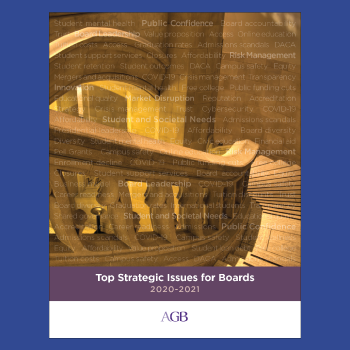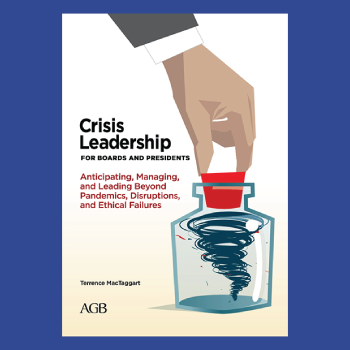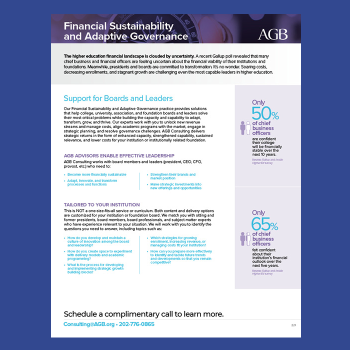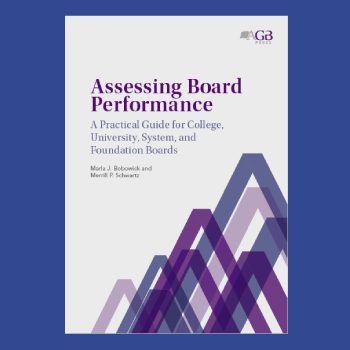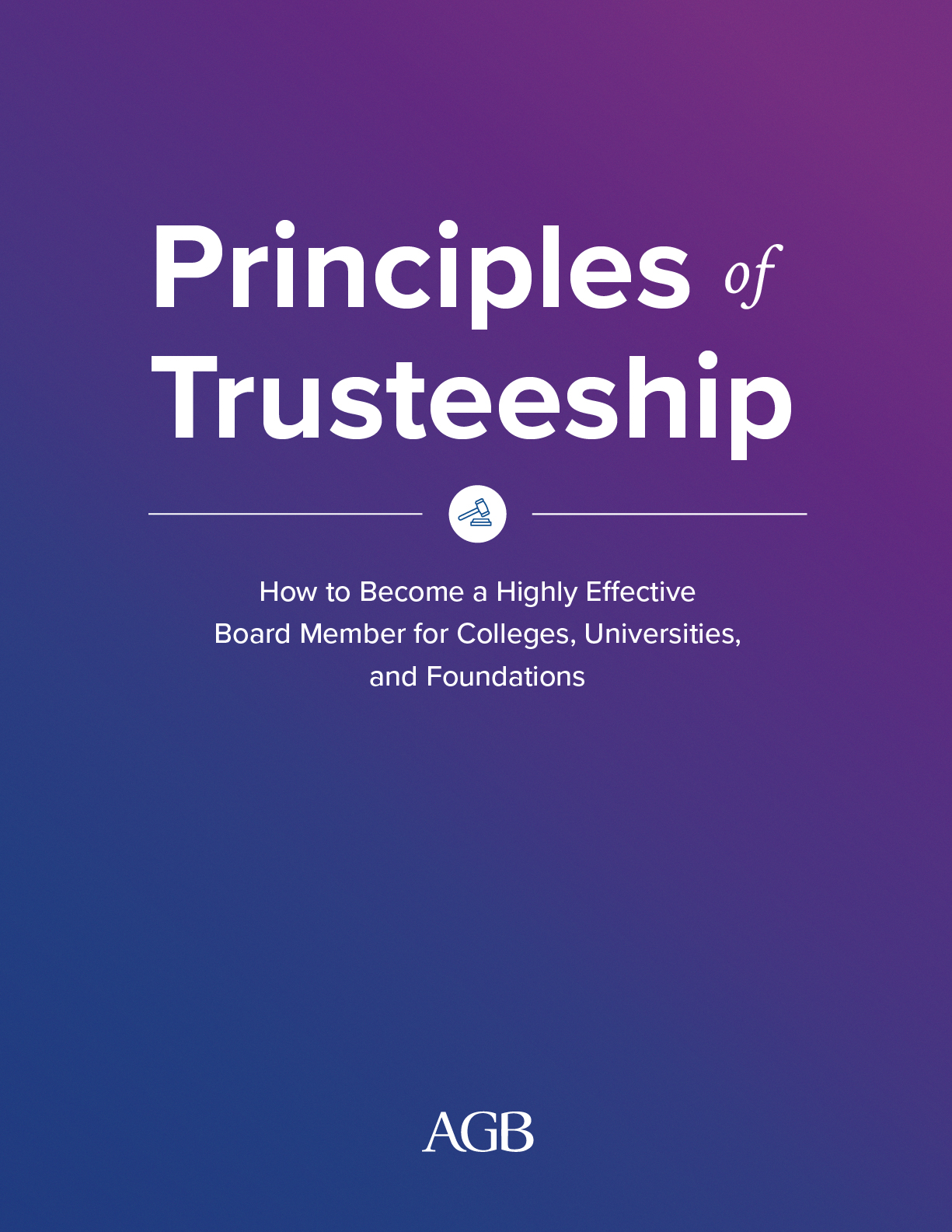Principle 8:
Focus on what matters most to long-term sustainability.
Principle 8 supports the fundamental function of thinking strategically by questioning the status quo and pointing toward a desirable and sustainable future. To focus on long-term impact, you must:
- Make decisions based on the strategy and vitality of the entire enterprise. Especially during times of disruption, use your perspective as a fiduciary—removed from day-to-day operations—to ensure that decisions made now support long-term sustainability.
- Help define what constitutes success for your institution. As part of the leadership team, work with the administration to develop a shared vision of what success looks like for your institution, given its particular mission.
- Focus your personal and professional talents on significant strategic issues. If you have expertise and experience to share, be intentional about when and how you do so.
“We’re fiduciaries of our institutions, and we have to think strategically about the future.
Especially in challenging times—whether it’s hiring the president, dealing with financial issues, or the pandemic—we have to rise above it all and think about what’s in the best interest of the institution.”
—Trustee, Private College
Questions for self-reflection.
- Which areas of the strategic plan align most with your knowledge, skills, and abilities? How do you contribute to strategic conversations? When do you get caught up in tactics?
- How well do you understand your institution’s business model and financial circumstances? What are your trends in enrollment, revenue, and expenses for the past five years? How do these compare with other academic enterprises?
- What will make your college or university relevant for the next generation? What is the board’s comfort with and capacity for anticipating and bringing about change?
- What are your institution’s strategic priorities for the future? How have they evolved? Where have you had the most success? The greatest challenges?
- Who are your traditional peer institutions? Who are your aspirational peers? What new competitors are surfacing? What is truly distinct about your institution?
This guide conveys the essence of highly effective trusteeship in a concise, easy-to-use format. It defines the attitudes and actions of highly effective board members, and provides insight into three fundamental functions:
- Understand governance by embracing all of your responsibilities in a structure of shared leadership.
- Lead by example by upholding the highest standards of integrity.
- Think strategically by focusing on what matters most to the long-term success of the whole enterprise.


